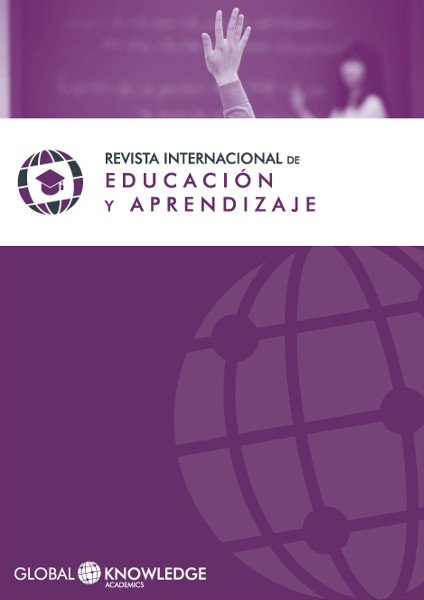Design and Implementation of a Didactic Proposal for the Teaching of Philosophy and Natural Sciences according to the Flippedclassroom Model
DOI:
https://doi.org/10.37467/gka-revedu.v6.1710Keywords:
Flipped classroom, Digital natives, Educational quality, New pedagogiesAbstract
The study shows the implementation of a flipped classroom as an alternative methodology for improving students´ academic performance. Experimental and control groups were formed with sixth-graders to whom pre and post-tests were administered in the areas of philosophy and natural sciences. In the end, this methodology was used with 224 students. Once these activities were conducted, a post-test was administered to the participants. The results of the post-test showed that 85% of the students who participated in the study answered the questions correctly. The researchers concluded that a flipped classroom methodology improves learning.
Downloads
Global Statistics ℹ️
|
862
Views
|
618
Downloads
|
|
1480
Total
|
|
References
Bergmann, J., y Sams, A. (2013). Flip Your Students’ Learning. Educational Leadership, 70(6), 16-20. DOI: https://doi.org/10.1177/1555458913487032
Briones, G. (1992). Epistemología de las ciencias sociales. Instituto colombiano para el fomento de la educación superior. Bogotá.
De Zubiría, Julián. (2006). Los modelos pedagógicos. Hacia una pedagogía dia-logante. Editorial, Magisterio. Bogotá, Colombia.
Expósito, J. Y Manzano, B. (2012) Escuela TIC 2.0: aprendizaje del alumnado de primaria en contextos educativos y socio familiares. EDUTEC, Revista Electrónica de Tecnología Educativa, (45).
Recuperado de:
http://edutec.rediris.es/Revelec2/Revelec45/escuela_TIC_aprendizaje_contexto_e ducativo_socio-familiar.html.
Fainholc, B., Nervi, H., Romero, R., & Halal, C. (2015). La formación del profeso-rado y el uso pedagógico de las TIC. Revista de Educación a Distancia, (38) p.1. Recuperado: http://www.um.es/ead/red/38/fainholc.pdf
García Aretio, L. (2013). Flippedclassroom: ¿b-learning o EaD? Contextos Uni-versitarios Mediados, nº 13,9 (ISSN: 2340-552X).
Goetz, J. y Lecompte, M. (1988). Etnografía y diseño cualitativo en investigación educativa. pág. 88. Madrid: Morata.
Hernández, R., Fernández, C., & Baptista, P. (2006). Metodología de la investiga-ción. México.
Johnson, D. W., Johnson, R. T., & Holubec, E. J. (1994). El aprendizaje cooperati-vo en el aula. Buenos Aires: Paidós.
Maggio, M. (2012). Enriquecer la enseñanza. Argentina Paidós.
Kappe, M. (2014). Conmovidos por las tecnologías: pensar las prácticas desde la subjetividad docente. Prometeo Libros.
Solano S, A & Pérez, V. (2016). Apropiación pedagógica de los dispositivos móvi-les y su articulación en las instituciones educativas. Recuperado el 9 de octubre:
http://132.248.9.34/hevila/RevistaEduSol/2016/vol15/no55/2.pdf
Downloads
Published
How to Cite
Issue
Section
License
Those authors who publish in this journal accept the following terms:
-
Authors retain copyright.
-
Authors transfer to the journal the right of first publication. The journal also owns the publishing rights.
-
All published contents are governed by an Attribution-NoDerivatives 4.0 International License.
Access the informative version and legal text of the license. By virtue of this, third parties are allowed to use what is published as long as they mention the authorship of the work and the first publication in this journal. If you transform the material, you may not distribute the modified work. -
Authors may make other independent and additional contractual arrangements for non-exclusive distribution of the version of the article published in this journal (e.g., inclusion in an institutional repository or publication in a book) as long as they clearly indicate that the work was first published in this journal.
- Authors are allowed and recommended to publish their work on the Internet (for example on institutional and personal websites), following the publication of, and referencing the journal, as this could lead to constructive exchanges and a more extensive and quick circulation of published works (see The Effect of Open Access).













